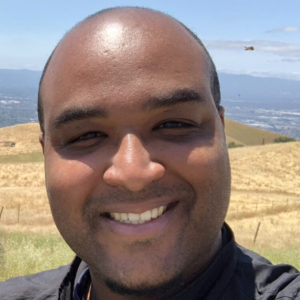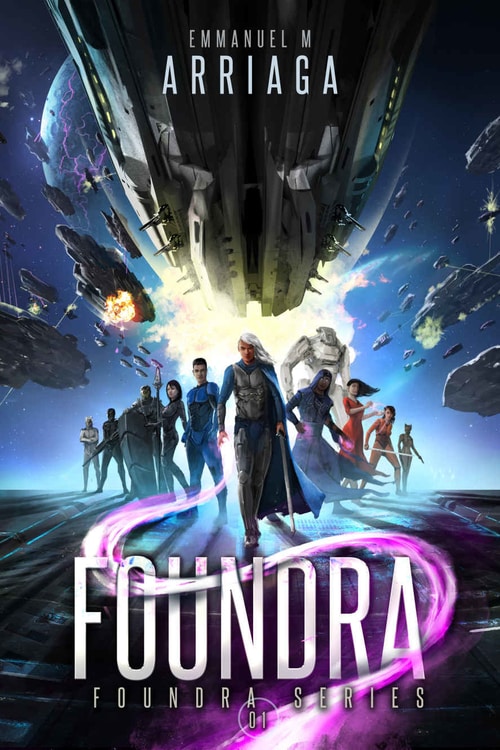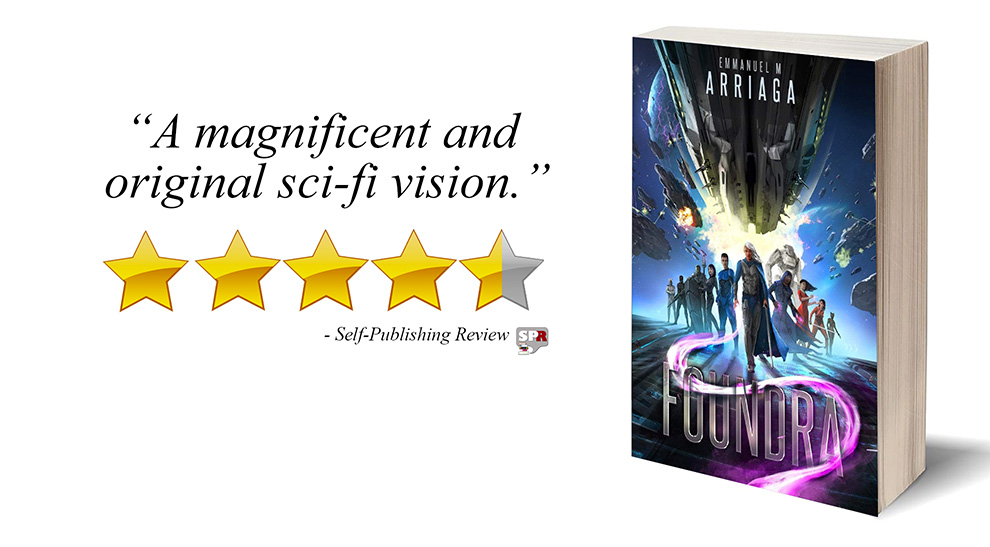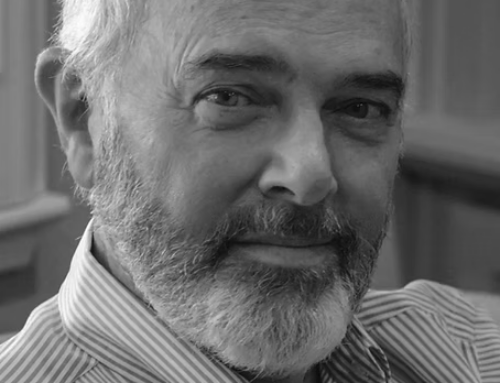 Emmanuel M. Arriaga grew up in the inner city of Philadelphia, Pennsylvania. From a young age, he was obsessed with fantasy and science fiction. Breaking the shackles of a low-income life, Emmanuel developed an interest in science, technology and engineering. He went on to graduate from Pennsylvania State University with a Master’s in Information Science.
Emmanuel M. Arriaga grew up in the inner city of Philadelphia, Pennsylvania. From a young age, he was obsessed with fantasy and science fiction. Breaking the shackles of a low-income life, Emmanuel developed an interest in science, technology and engineering. He went on to graduate from Pennsylvania State University with a Master’s in Information Science.
For almost a decade, Emmanuel has sought to share his vivid imagination with the world, learning the art of story crafting and eventually becoming an award-winning author. With a love for travel, gadgets and volunteering, Emmanuel is enjoying life and helping others.
Tell us about your book.
Foundra covers the story of a young genius named Neven who finds himself drafted into an elite military strike force led by one of the immortal Founders of the Huzien Empire. They team up with a legendary wizard named Soahc to investigate instances of otherworldly creatures attacking fringe colony worlds. Neven, Soahc and their allies discover something ancient from another plane of existence. Something that exposes the fragility of their galactic empire as they fight to survive annihilation from extradimensional beings.
Why did you choose to self-publish?
Like many writers, I tried to go the traditional publishing route, but after spending over a year of querying agents without any success and even sending my manuscript directly to publishers, I decided to stop playing the writing lottery and instead self-published my first novel. If you have the resources, you can also hire the same level of expertise to help you that you’d get access to with a traditional publishing house. This allows you to turn out a really high-quality product as an indie author.
 What tips can you give other authors looking to self-publish?
What tips can you give other authors looking to self-publish?
Get feedback on your writing and ultimately, hire a “good” editor. If you’re going to self-publish, you need to do it right. When people go indie, they often try to be scrappy but I don’t think that’s a good long-term strategy. Which means at the end of the day, hiring a professional editor, cover designer, book designer and marketer. If you don’t want to put in that effort, your books will suffer for it.
What was your steepest learning curve during the publishing process?
When you’re first starting out on your own, you have to immediately start researching to understand what it takes to successfully launch a book. It’s not something you can stumble your way through and I know for me, it took a lot of time to understand all the moving parts. I’m still learning and am thankful for the experts I’ve learned from over the years. It’s the whole part of the process you don’t think about as a writer. You just put all your heart and soul into writing a book and then realize you’ve finished half of the job.
As a writer, what is your schedule? How do you get the job done?
I have two small kids so blocking out time for writing has gotten harder than ever. For me, it’s usually late nights and less sleep. I try to commit to doing something related to my books every night. Whether it’s sitting down to write, or focusing on advertising/marketing, etc. When I do sit down to write, I have a process that works well for me.
I create a complete outline for a novel before I sit down to write a single page. These outlines come from one sentence (to one page) ideas for a book that I write down when they come to me (either from dreams or from random situations I encounter day-to-day). After I put together the outline, I then use the snowflake method to expand each bullet from the outline into a full chapter. Then, I take some time to prep for the next writing session by making note of where I left off in my outline and pulling the next bullet into the next blank chapter. It’s a system that has worked well for me over the years.
How do you deal with writer’s block?
I have a process to how I write that eliminates writer’s block. I’m a firm believer that consistency is key and agree with writers like Stephen King and R.A. Salvatore that writer’s block is just an excuse we use to not write. When I sit down to write, I re-read the prior chapters I wrote during the previous session, then move on to the next outline bullet that I prepped prior.
This gets the creative energies flowing and I get right into it. A key thing that I keep in mind is to not be afraid to scrap ideas or deviate from my outline if I feel the story is going in a different direction. For me, my characters determine the direction of the story and I listen to them, I’ve had very interesting plot points or twists happen that weren’t planned but that just made sense in the moment. I go with that and am not afraid to change fundamental aspects of the story as long as it gets me to my final goal for the book.

Tell us about the genre you wrote in, and why you chose to write this sort of book.
I’ve always been a fan of sci-fi. From my early years watching Star Trek: The Next Generation, I was drawn to sci-fi shows and movies. This grew as I got into shows like Stargate SG1, Farscape, Andromeda, Battlestar Galactica, Voyager, Deep Space Nine and Firefly to name a few. If there was anything that had spaceships or aliens, I was all over it.
I decided to write sci-fi because when I was little, I envisioned this expansive galactic alliance like the Federation from Star Trek except ruled by immortals. This eventually became the Huzien Empire that’s at the center of the Foundra Universe.
Who are your biggest writing inspirations and why?
A lot of my biggest inspirations are actually fantasy authors funny enough. People like R.A. Salvatore, Christie Golden, Tracy Hickman, Brandon Sanderson and Margaret Weis. I do have some sci-fi inspirations like Ian M Banks and more recently James S.A. Corey.
These authors inspire me due to their ability to create impressive worlds with interesting characters and their ability to interweave complex systems (either created by them or pulled from somewhere else like Dungeons & Dragons) directly into their worlds in a believable way. This is not easy to do and there is a delicate balance that has to be maintained to stay true to the systems but also keep the reader engaged.
Why did you write about this particular subject?
The Foundra Universe is something that I have dreamed about since I was a child. I would always play out these missions with fantastical characters in my head and eventually decided to start writing down my ideas. I quickly amassed a treasure trove of lore and stories. One of these stories morphed into what Foundra is today and I have many more in the pipeline with the sequel to Foundra (Pride of Ashna) now available for pre-order on Amazon.
What’s next for you as an author?
I’m currently working on the 3rd book in the Foundra series, don’t have any specifics around a release date for that at this stage but the 2nd book Pride of Ashna just went live for pre-order. I also started work on a new sci-fi horror series that is still in the early stages. This will be another expansive universe and I’m excited to share more information on this in the future as I get closer to publication. I tend to write out an outline for a book and let it marinate for a while before I start writing. I have several unrelated novels also currently at this stage.
Author Links
Get an Editorial Review | Get Amazon Sales & Reviews | Get Edited | Get Beta Readers | Enter the SPR Book Awards | Other Marketing Services






















Leave A Comment